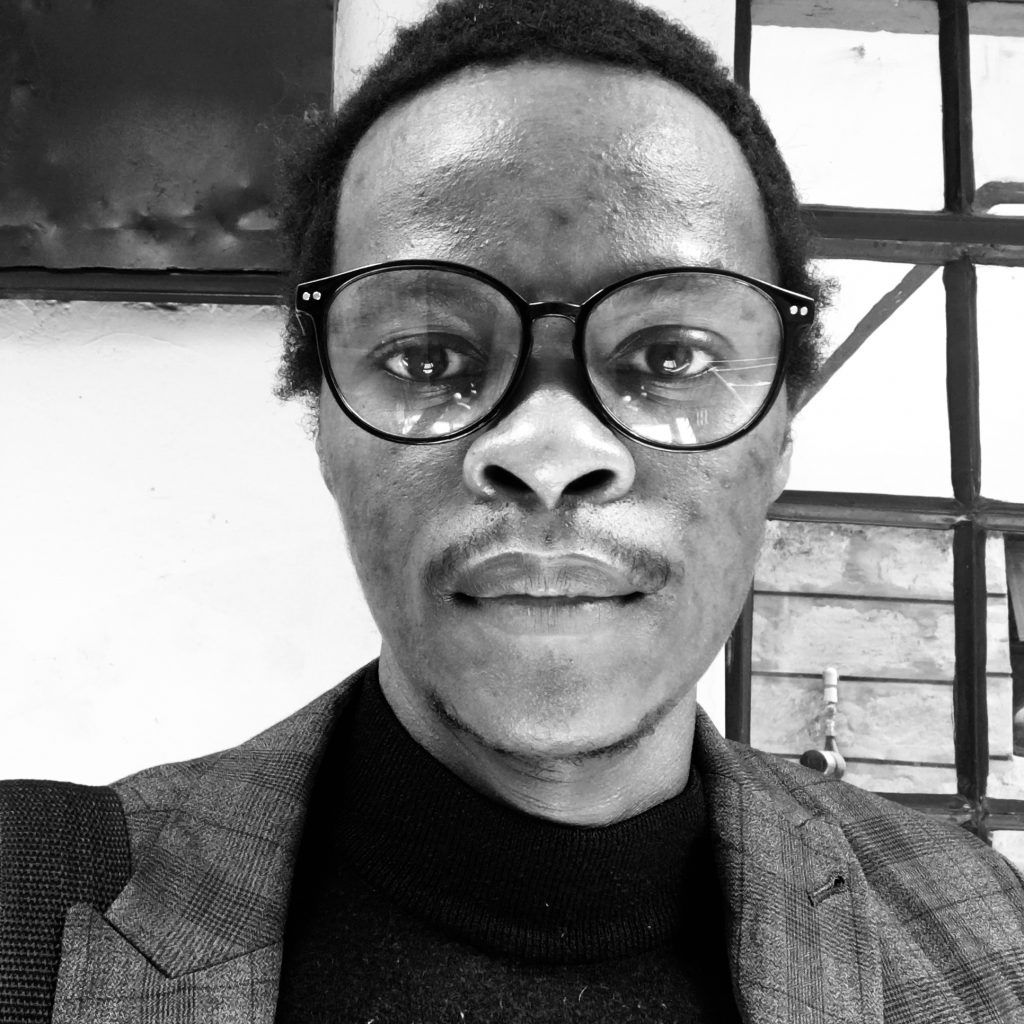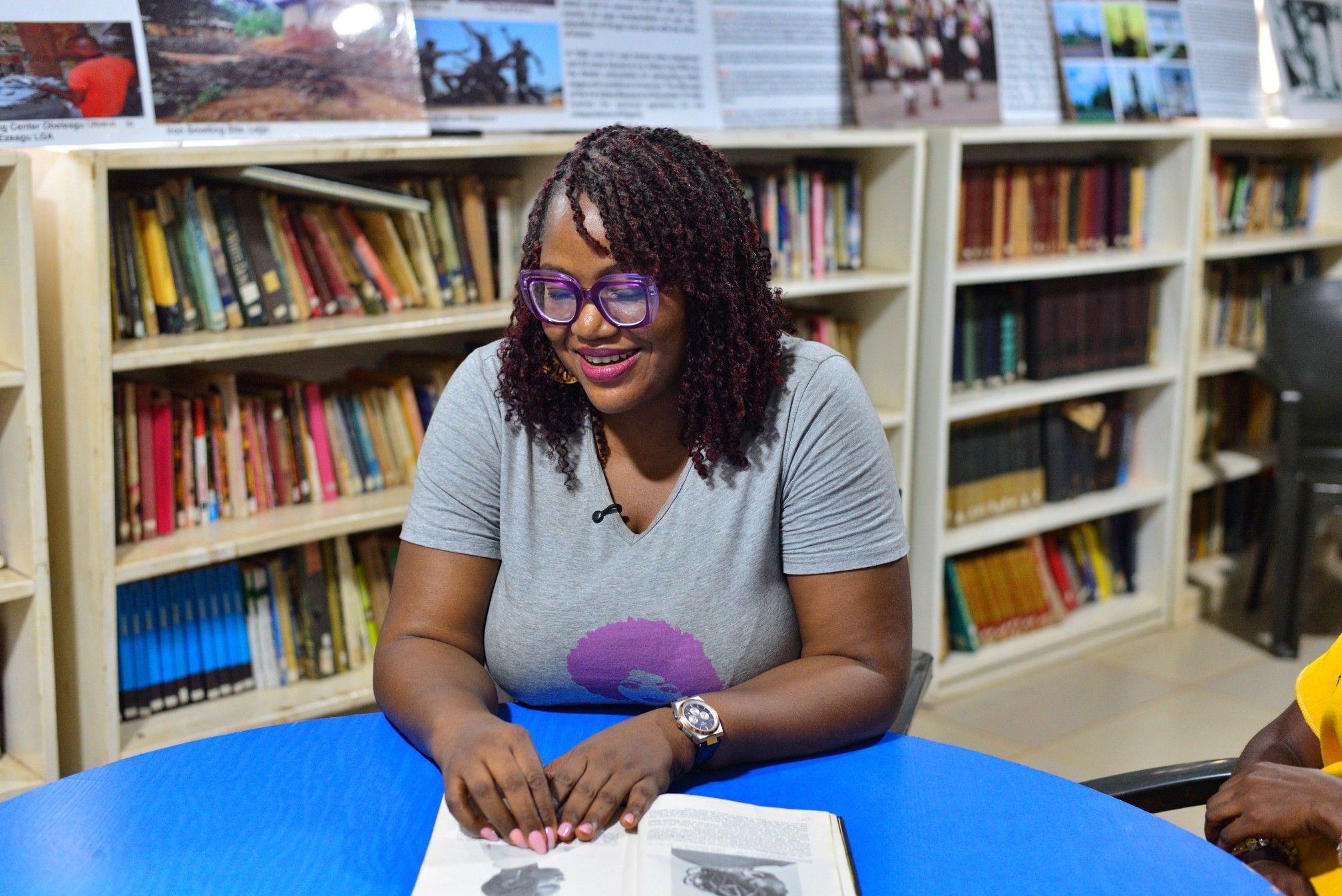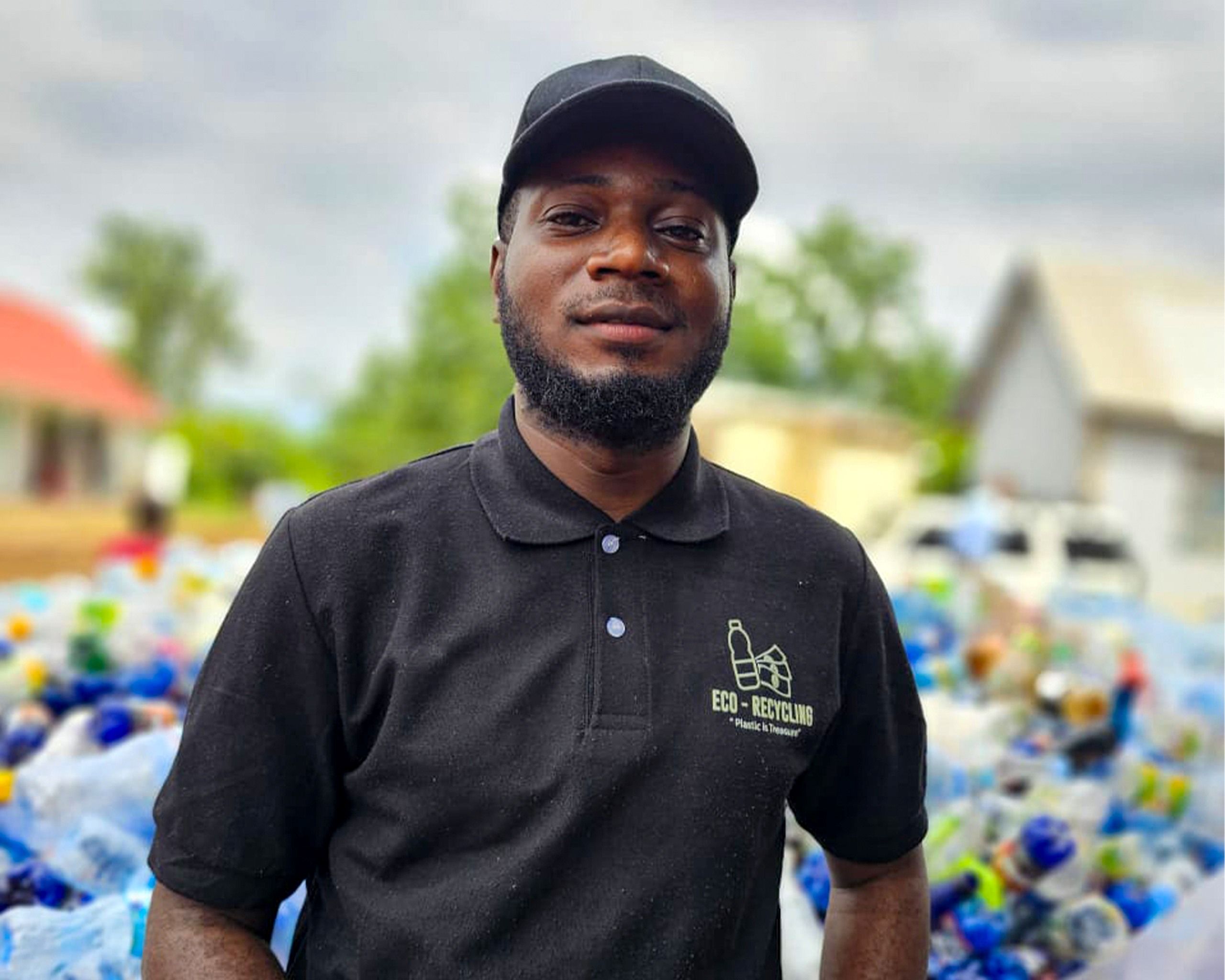In 2009, Jim Nyakundi, the undisputed Kisii Rap King, popularly known by his stage name Smallz Lethal, quit the school. He had been pursuing journalism at the Nairobi Aviation College. This, to the unsettling discomfort and immeasurable discontentment of his parents and his uncle, in whose home he had been residing in Uthiru. He had decided to pay close attention to his music career, which, in his heartfelt expression, remains a jealous mistress demanding undivided attention.
The initial plan and God’s laugh
Previously, he had been working hard with the intent of balancing his studies and his budding music career. Unfortunately, he found it difficult to have them both.
“I’d miss many classes and exams as I was needed to perform even during weekdays. That made it difficult for me to focus on schoolwork; my parents were uneasy,” he says, beating a nostalgic memory.
Before calling it quits at the Nairobi Aviation College, he had a meeting with his mum at the uncle’s place. She had travelled from their home in Nyanchwa Estate in Kisii County.
“Days before my mum visited, I had travelled to Kisii town for a performance together with Nonini and P-Unit. Word went wild that I had been in town, where I dropped bars and bangers, although I neither notified my parents nor visited home after the performance,” he says minutes into our call, he in Kisii and me, holed up at my desk in Nairobi CBD. It is chilly outside, and I have no intentions of rushing our conversation. We are warming up for a revolutionary dialogue.
His mother didn’t know what to make of the news of her firstborn son venturing into music, and ignoring his original raison d’être for leaving Kisii for Nairobi.
The path less travelled
She had seen him morph from a young boy writing rhymes in between his class seven science notebook, to a performer town-trotting. The idea of paying school fees was disconcerting if he did not take his education more seriously−at least by her yardstick of seriousness−and slow down on his music engagements which were now overwhelming him.
“She gave me two clear-cut choices: either I drop my music aspirations and focus on my studies, or not get school fees anymore,” he says.
“Was that a difficult decision to make on the spur of that moment?” I ask in anticipation.
“No, it wasn’t. I had spent a lot of time thinking about it, and had already decided that I would choose my music career and put my course on hold,” he says.
His uncle, too, in solidarity with Nyakundi’s parents, offered him two choices.
“My uncle said that he would not continue accommodating me if I do not revisit my decision and go back to school. I would hear none of their sustained cajolings, and, therefore, had to leave Uthiru and out to the streets,” he says, reassured of his passion for music in particular and arts at large.
Into the unknown
He left Uthiru and went to Dandora slums to cut a niche for himself in the street life, and to attempt a foothold at independent living.
The sun went down, opening the skies to the dimness of the street paths and to the thug life that thrives in the deep of the darkness. He sat on a verandah outside a kiosk hoping for the morning to come. Then, the next day, the sun rose. It dawned on him that he was now plunged into the depths of a new life. He had to make it in life to make it out of the streets, or his sad, difficult reality would persist.
The new life unfolded before his eyes burdened by parental rejection. Balancing the pain in his heart with his passion for music, he spent most of his days scheming how to overcome, and supersede the street realities.
“The streets are rough. You hardly have any hope to hold onto,” he says, resigning himself into the accuracy of the memory.
The actions
He would operate between Dandora and Kisii town, maybe to hasten the pace of time, which in the streets, moved sluggishly-hopelessly. Then, in 2009, he faced a major tribulation. Life slugged him and his fortunes melted away.
“In order to survive, I started engaging in criminal activities. I’d talk naive people into inexistent deals, conning them. I would also pickpocket and even snatch phones to sell to make a living. That was my entry into thug life,” he says.
His evil deeds were unsustainable, at least, they would not go on for long. His fortieth day dawned, and his actions caught up with him.
The consequences
He sat on a high stool next to the counter in a popular bar in Kisii town. The waitress served him his drink of choice. Music blasted in the background countering the noises in the bar. He and his fellow revellers were having a great time by their standards when a mob stormed in and walked stealthily to where he sat.
“I turned around to see a host of angry faces staring sharply, unblinkingly at me. A larger, determined mob was waiting for him outside, ready to lynch him and bring an end to his thieving practices. They beat him up to a pulp, and when he profusely bled, they intensified the beating. I felt an adrenaline rush overpower me. They grabbed me from behind and frog marched me outside. I didn’t immediately know what was happening around me. I was tipsy, and shocked,” he says.
“As the mob beat me up, a crowd cheered angrily, the man to whom I had sold a stolen phone emerged. He told the ringleaders of the mob that I had given him the phone to charge, and that he was there to give it back to the owner. He saved me from further beating,” he adds.
The transformation
Later, he learned that a lady from whom he had snatched the phone had organized the gang to beat him up. He summoned his waning strength and walked staggeringly and in pain to his friend’s house.
“He carried out first aid on me, and I took a few days to recuperate,” he says.
After the incident, he was over with the Kisii experience and was ready to return to Dandora, what turned out to be his Damascus moment of Saul-to-Paul transformation.
“I came back to Dandora, back to the streets. I compiled the songs that I had recorded and started selling during events. It was during one of the performances that I met Agano, Labala and Wakamba Wawili, who were among the founding members of Ukoo Flani Mau Mau music band,” he says.
He later secured a shackle that he moved into, it would cost him 900 bob a month. That was before he moved in with Agano of Mau Mau band, with whom he stayed for some time.
“While with my newfound company, we would go for performances mostly in Westlands. I met other hip-hop artists including Kitu Sewer,” he says.
He says that a music project on which he collaborated with Kitu Sewer and one of the rappers with whom he recorded the first song in high school is due in two months’ time.
I also get to learn that Ukoo Flani is an acronym for Kiswahili “Upendo Kote Olewenu Ombeni Funzo La Aliyetuumba Njia Iwepo,” loosely translated to, “Love to all everywhere, and pray for guidance from our Creator that He may make a way.”
Mau Mau is a borrowed concept from the revolutionary freedom fighters who fought for Kenya’s freedom from the white colonizers. That, in part, explains the inspiration in their revolutionary songs, which, by extent, seek to inspire change in society and advance the ideas of human freedom.
Raptivism
One of Lethal’s songs is titled “I’m Offended” was released in April 2020. It is a scathing call to the Governor of Kisii County, James Ongwae, to take responsibility and be accountable to the people and serve the people.
Partly, the lyrics in the first verse go:
Put your mouth where your truth is
Ongwae pia umetuangushanga
Tusianzie mbali cheki Nyanchwa barabara
Aibu kubwa kwa watu wetu wa hapa
He tells me the Nyanchwa feeder road connection to Kisii town that he mentions in the song, is a five-minute walking distance. Yet he would get stuck, numerous times, as he drove his father to the hospital for his physiotherapy sessions. He decided that as a raptivist, a rapper who uses his art for activism, he had a role to play in ensuring that change came.
Colliding with those in power
He released the song, and that marked the beginning of a rough season for him.
“The song swiftly became a hit. It trended and the governor listened to it and sent his policemen to arrest me,” he tells me.
“Were you taken to a court of law?” I ask.
“No, as it was, there were no offences with which to charge me. The governor claimed that I had defamed him, but that could not amount to a criminal offence,” he tells me.
“Then what did they do to you?” I insist.
“They held me in a room for questioning, after which they insisted that I delete the video. I maintained that I was not in charge of the distribution of my music. Therefore I did not have the log-ins to my YouTube channel and could not delete it. Later, the governor would call me to ask how much it had cost to produce the video, a blatant effort to make a counteroffer so I could pull it down. I declined,” he says.
Lethal would then call South Mugirango Member of Parliament, Silvanus Osoro, who also happens to be his good friend, to engage the governor, after which he was released.
In response to the call for accountability, the governor tarmacked the Nyanchwa road and other feeder roads leading to Kisii County. That, marking an instance of the impact of his raptivism.
Revolutionary purpose
It’s difficult to miss the revolutionary vibe in his songs. He tells me that his inspiration is to advance the ideals set forth by revolutionaries. In his songs, he acknowledges Marcus Garvey, Malcolm X, Tom Mboya, and Mau Mau fighters.
“As an artist, I have a voice to speak truth to power and demand services. Something that would be ignored as noise if the ordinary person was to demand. My role in the society is to constantly demand better for my people by calling the powerful to account using my art,” he states.
And what became of his impaired relationship with his parents? I’m curious to know.
“Eventually, they had to accept the reality of the life’s path that I had chosen. I am an artist and there was no going back. Today, they are proud of me and the strides I have made. But it isn’t easy. My mum is at times worried about my sharp criticism of bad governance. However, I constantly assure her that I will turn out okay in the midst of the turbulence. I have a role as an artist and I would not abdicate it,” the 35-year old rapper says.
What Nyakundi is up to
In Kisii, he decided to give back to his society. He founded the Kisii Rap Youth Group (KRYG) through which he directly mentors two rappers, and inspires and constantly helps out scores of others. Under the KRYG umbrella, he has a football team that he also supports.
“I have a role to play in transforming the lives of people in my community. As a sports enthusiast, I offer support to youth who are doing very well in sports. Previously, we came fourth in a county league and that was a good performance,” Lethal, also a table tennis star, says.
He tells me of a performance that will take place at City Primary School in Ngara, Nairobi County.
It’s coming up in two days’ time after our conversation. I really feel the undiluted urge to attend the show and meet him- meet the rapper who left journalism to marry music- in person and possibly receive an autographed copy of one of his numerous albums. But I know I might not attend, given the schedule for that day. I hope for the next time, and we hang up, with a plan to keep the conversation going.
Watch his music, I'm Offended:
https://www.youtube.com/watch?v=ECDzQ99gB4w&ab_channel=SmallzLethal
You will also love: Peter “Sharvin” Njoroge on His Music Career Marred With Family Fall-Outs, Hard Drugs, Prison, and Finally Sweet Redemption





